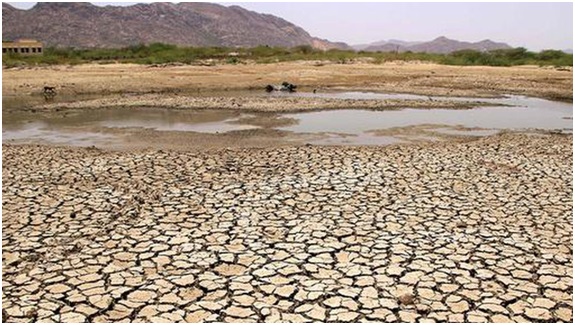India and the Asian Development Bank to establish a climate change and health hub in Delhi (The Hindu)

- 28 Aug 2023
Why in the News?
India's G-20 document states that the climate change and health hub will facilitate knowledge sharing, partnerships, and innovations to assist developing countries, while health systems will face challenges from infectious diseases and natural disasters driven by climate change.
Why in the news?
- India, in collaboration with the Asian Development Bank (ADB), is gearing up to inaugurate a climate change and health hub in the national capital.
- This initiative follows India's earlier achievement in hosting the inaugural WHO Centre for Global Traditional Medicine, located in Jamnagar, Gujarat.
- The forthcoming hub's mission is to foster knowledge exchange, cultivate partnerships, drive innovations, and extend support to nations beyond the G-20, with a special focus on developing countries.
The Significance of the Climate Change and Health Hub:
- Fostering Collaboration: This center holds paramount significance as it brings together diverse partners to engage in vital discussions regarding the far-reaching impacts of climate change.
- It provides a unique platform for shared learning and collaboration among stakeholders.
- Addressing Health Emergencies: India's recent G-20 outcome document highlights that climate change remains a key driver of health emergencies, including the resurgence of infectious diseases.
- Moreover, it exacerbates the frequency and severity of natural disasters, posing a significant threat to the capability of health systems to provide essential services.
- Boosting Resilience: Given this backdrop, it is imperative to bolster the resilience of health systems against the adverse effects of climate change.
- The G-20 outcome document outlines a commitment to prioritize the development of climate-resilient health systems, establish sustainable and eco-friendly healthcare supply chains, mobilize resources for resilient, low-carbon health systems, and promote collaboration through initiatives like the WHO-led Alliance for Transformative Action on Climate and Health (ATACH).
- Tackling Zoonotic Spillovers: The recent G-20 Health Ministers' meeting expressed concern about the rising incidence of zoonotic spillovers, leading to the emergence of new diseases.
- In this context, there is an urgent need to identify both new and existing drivers using a scientific and risk-based approach while reinforcing existing infectious disease surveillance systems.
- Global Impact: Situated in New Delhi, the Climate Change and Health Hub is poised to address these pressing issues on a global scale, serving as a hub for international collaboration and solutions.
About Asian Development Bank (ADB):
- Founded in 1966, the Asian Development Bank (ADB) is a multilateral institution that counts 68 members among its ownership, with 49 hailing from the Asian and Pacific region.
- ADB is unwavering in its commitment to fostering a prosperous, inclusive, resilient, and sustainable future for Asia and the Pacific, all while maintaining its steadfast resolve to eliminate extreme poverty.
- To achieve its noble objectives, ADB extends its support to member nations and partners through a comprehensive suite of financial instruments.
- This includes loans, technical assistance, grants, and equity investments, all aimed at catalyzing social and economic development across the region.
- In essence, ADB stands as a stalwart advocate for advancing social and economic development in Asia and the Pacific.
- As of December 31, 2019, ADB's five largest shareholders are Japan and the United States, each possessing 15.6% of total shares, followed by the People's Republic of China (6.4%), India (6.3%), and Australia (5.8%). The institution's headquarters are situated in Manila, Philippines.
About WHO Global Centre for Traditional Medicine (GCTM):
- The WHO Global Centre for Traditional Medicine (GCTM) is a pioneering knowledge hub dedicated to traditional medicine, recognized as the world's premier center of its kind.
- Situated in Jamnagar, Gujarat, it represents a remarkable collaboration between nations.
- India, as the primary investor in GCTM, has committed an approximate sum of US$ 250 million to facilitate the center's establishment, infrastructure development, and operational activities.
The GCTM is designed to achieve five key objectives:
- Archiving Traditional Wisdom: GCTM seeks to harness technology to construct a comprehensive database of traditional knowledge systems.
- Setting International Standards: It aspires to establish global standards for the testing and certification of traditional medicines, enhancing confidence in these age-old remedies.
- Global Knowledge Exchange: The center aims to serve as a global platform where experts in traditional medicine converge to share their experiences and expertise.
- Funding Research: GCTM endeavors to mobilize resources and funding for research in the field of traditional medicines, fostering innovation and scientific exploration.
- Holistic Healing Protocols: The center is dedicated to developing holistic treatment protocols for specific diseases, enabling patients to benefit from the complementary strengths of both traditional and modern medicine approaches.
